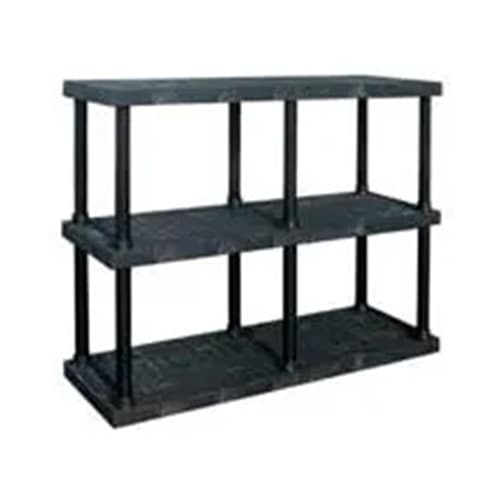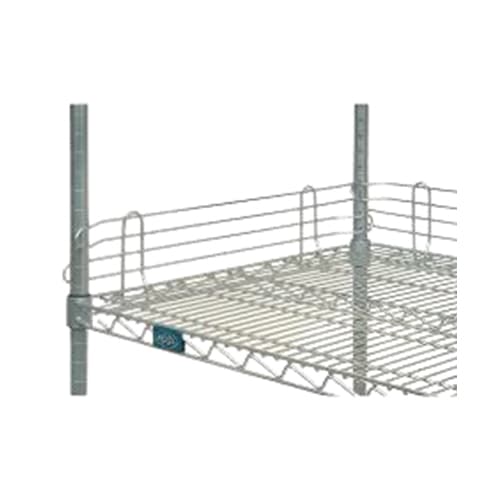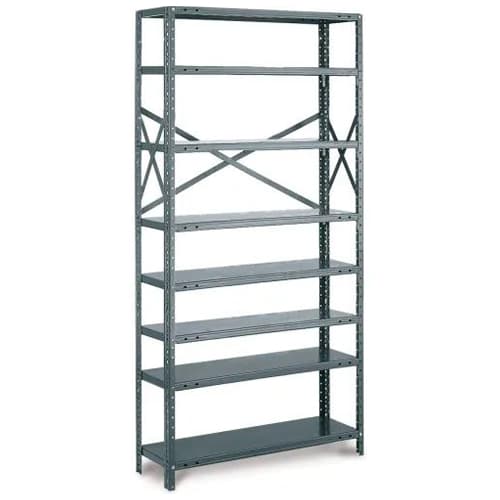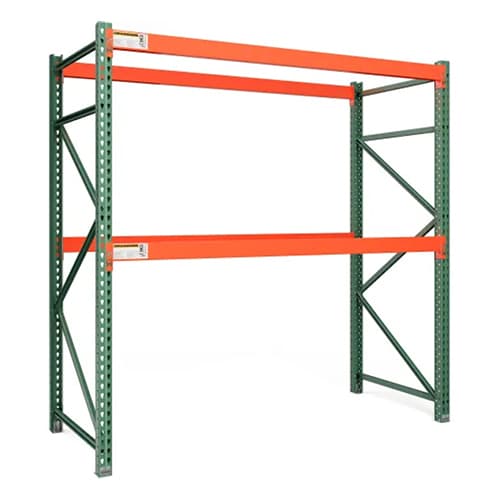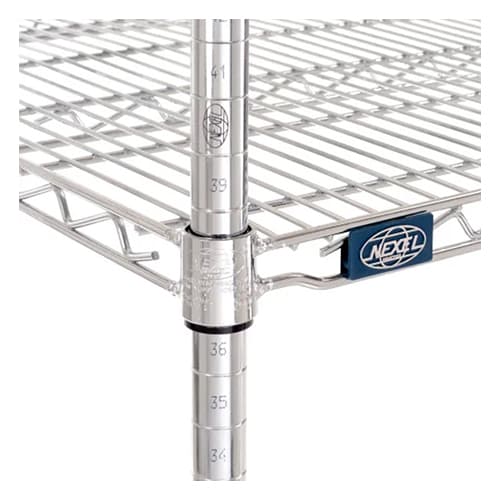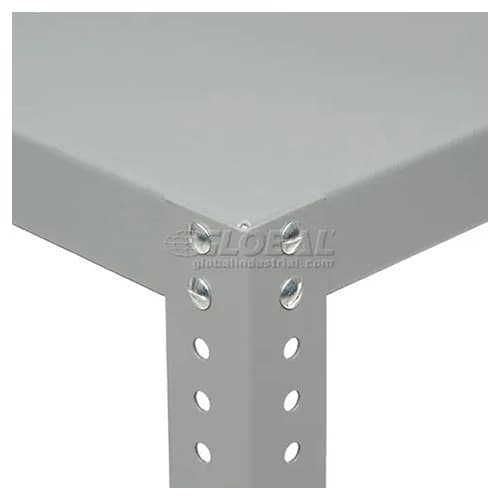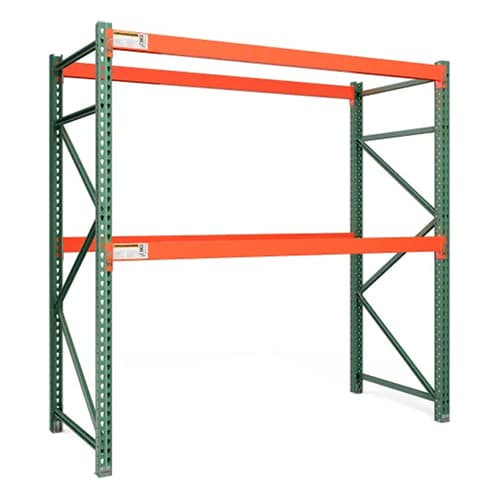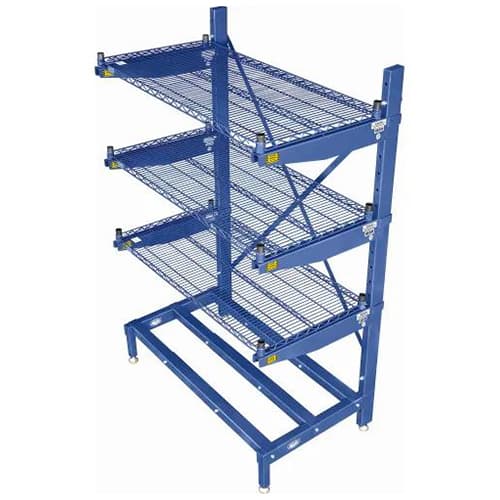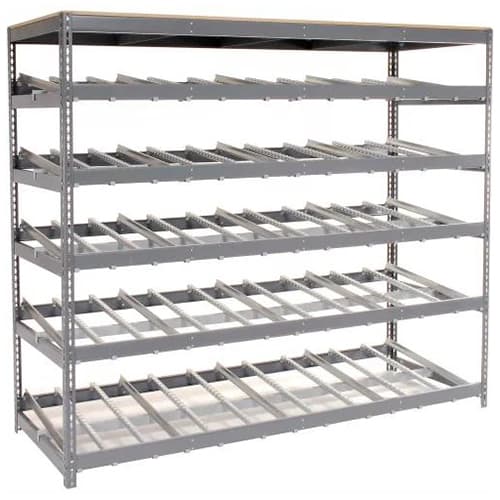When it comes to shelving, not all systems are equal. Commercial and industrial shelving is a world apart from residential solutions - different materials, weight capacities, durability, and design flexibility. While plastic is mostly used for residential settings, steel shelving or wire shelving units are best for commercial or industrial spaces. So which should you choose?
Key takeaways:
- Wire shelving is lightweight, cost-effective, and ideal for commercial environments where airflow, mobility, and cleanliness matter.
- Steel shelving is heavy-duty, solid-surfaced, and perfect for storing heavy equipment and parts in industrial settings.
- Both offer modular, mobile, and durable solutions—but each shines in specific use cases.
- High density mobile shelving maximizes tight footprints and can be implemented with either wire or steel.
Understanding the Spectrum: From Residential to Industrial Shelving
Let’s start with a quick shelving overview. Not all shelves are created equal, and what works at home won’t cut it in a warehouse.
Plastic Shelving
Great for residential use. Lightweight, low capacity.
Wire Shelving
Ideal for commercial applications. Light yet strong, easy to clean.
Steel Shelving
The go-to for industrial use. Built to handle heavy loads.
Commercial Rack Shelving / Racking
The heavy-duty end of the spectrum, often used in warehousing and distribution for palletized inventory.
These differences aren’t rules, but it’s a good general framework. If you're running a restaurant kitchen, clinic supply room, retail backroom, or a warehouse, you’ll likely be choosing between wire shelving and steel shelving—so let’s dive deeper into each.
What Is Wire Shelving?
Wire Shelving
Though the name might suggest otherwise, wire shelving is indeed made of steel. Specifically, it's crafted from steel wires formed into grid-like shelves, often coated in finishes like chrome, epoxy, or antimicrobial materials for specialized applications.
These wire shelving units are prized for their versatility, visibility, and ease of use—and are far more durable than they look.
Key Benefits of Wire Shelving Units:
- Lightweight Yet Strong – Thanks to their design, shelf wire shelving offers a high strength-to-weight ratio that’s great for mobile use and reconfigurability.
- Airflow and Visibility – The open-wire design allows for maximum visibility and airflow, which keeps items dry and reduces dust buildup.
- Rust-Resistant Options – Wire shelving comes in finishes that resist corrosion, making it suitable for both dry and wet environments.
- Mobile and Modular – Wondering how mobile is wire shelving? The answer: Very. Add casters, and it becomes a flexible, roll-anywhere solution. Many units are also adjustable or expandable.
- Cost-Effective – Generally speaking, wire storage racks are more budget-friendly than steel shelving without sacrificing performance in most commercial settings.
Best Applications for Wire Shelving:
Wire shelving excels in environments that require regular cleaning, airflow, and light to moderate storage:
- Restaurant kitchens and walk-in coolers
- Retail storage rooms
- Labs and healthcare facilities
- Offices and janitorial closets
- Dry goods or paper supply storage
- Cleanrooms and food prep areas
If you’re looking for wire storage shelving units that are easy to move, resist rust, and offer excellent visibility, wire is likely the way to go.
What Is Steel Shelving?
Steel Shelving
On the other side of the spectrum, steel shelving—especially commercial steel shelving—is designed for rugged use. With solid shelf surfaces and a heavier build, steel units are engineered to hold high-weight items and withstand daily abuse in industrial environments.
Unlike wire shelves, which are open and breathable, steel shelving offers a flat, enclosed platform—ideal for storing things that can leak, roll, or snag.
Advantages of Steel Shelving in Warehouses and Industrial Settings:
- High Load Capacity – Commercial steel shelving is available in standard, heavy-duty, and extra heavy-duty models to support everything from tools to machinery parts.
- Solid Surface Shelving – No holes, no snags, and no risk of small items slipping through. Ideal for containers with cords, liquids, or small parts.
- Closed or Open Options – Closed shelving keeps dust out and items secure; open units provide easier access.
- Boltless Assembly Available – Many steel shelves come in boltless models, allowing for faster setup and reconfiguration.
- Durable and Long-Lasting – Built to endure impacts, heavy loads, and frequent use over time.
- Mobile Options – Mobile shelving isn’t just for wire. You can find steel shelving mounted on wheels for mobile tool carts and portable storage racks.
Where Steel Shelving Works Best:
- Warehouses and fulfillment centers
- Manufacturing and production floors
- Automotive shops and maintenance areas
- Utility or mechanical rooms
- Parts and tool storage
- Inventory rooms
In short, steel shelving is the go-to when your storage needs are heavy, industrial, and unrelenting.
What They Have in Common
Despite their differences, both wire shelving units and steel shelving systems share several useful qualities:
- Modular and Adjustable – Both options allow for height adjustment and expansion over time.
- Fire-Resistant – Made from steel, both are naturally fire resistant—an important safety consideration.
- Long-Term Durability – You can count on both to provide years of reliable storage.
- Mobile Options Available – Whether you're choosing mobile shelving for a lab, office, or warehouse, both wire and steel shelving systems can be equipped with wheels or ordered in mobile configurations.
- Flexible Configurations – Available in different depths, widths, and styles, including high density mobile shelving systems that maximize footprint in tight spaces.
High Density Mobile Shelving: Maximize Your Footprint
One area where wire shelving really shines is in high density mobile shelving systems. These are often seen in medical facilities, cold storage, or food prep environments, where space is tight but organization is key.
By placing wire shelving units on guided rolling tracks or casters, you can compress multiple shelves into a small footprint and roll them apart as needed. It’s a popular way to boost storage capacity without expanding the physical space.
This type of system can also be done with commercial steel shelving, though wire is more common due to its lighter weight.
How to Choose Between Wire and Steel Shelving
If you’re still stuck deciding, ask yourself a few questions:
Are you storing heavy tools, parts, or industrial equipment?
Go with steel shelving—you’ll need the load-bearing capacity and solid shelf surfaces.
Is your environment prone to moisture or requires airflow?
Wire shelving is the better choice, especially with rust-resistant coatings.
Will you need to move or reconfigure the shelving frequently?
Wire shelving is easier to mobilize and adjust on the fly.
Does hygiene or cleanliness matter?
Open wire storage racks allow for airflow, reduce dust, and are easy to clean.
Do you need visibility and quick access?
With wire storage shelving units, you’ll see everything clearly and access it faster.
If you're planning long-term and anticipate growing your storage needs, consider scalability and adaptability. It's always better to have more capacity than not enough.
Commercial Rack Shelving: The Next Step Up
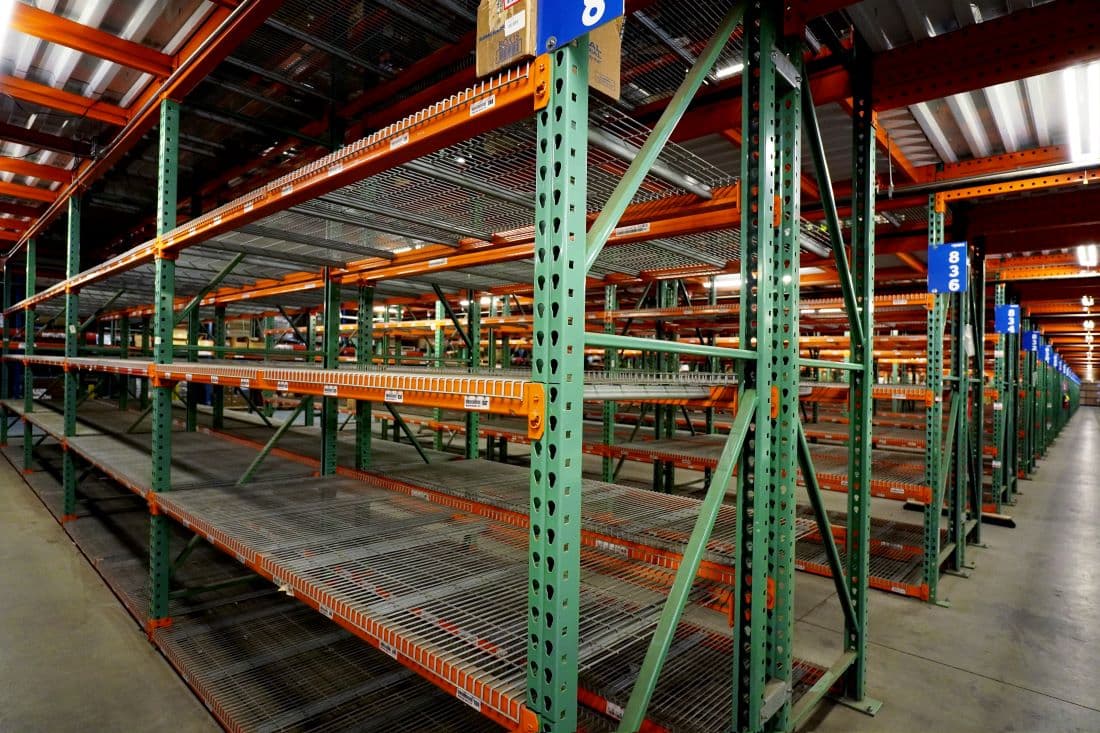
If neither wire nor steel shelving seems robust enough for your needs, commercial rack shelving might be the answer. This type of shelving—also known as racking—is designed for pallet storage and high-volume inventory management.
Think of racking as the big brother of steel shelving. It’s used primarily in distribution centers, bulk warehouses, and high-throughput environments where forklifts and pallet jacks are part of everyday operations.
If your facility falls into that category, you may want to explore rack systems like:
Choosing between wire shelving and steel shelving doesn’t have to be complicated. Both are dependable, durable, and modular—your decision just needs to match your environment and use case.
| NEED | BEST CHOICE |
|---|---|
| Airflow, moisture resistance, visibility | Wire shelving units |
| Heavy-duty, solid surface, tool/equipment storage | Steel shelving |
| Mobility and quick reconfiguration | Mobile wire shelving |
| Industrial capacity and strength | Commercial steel shelving |
| Tight footprint with max storage | High density mobile shelving |
If you’re outfitting a facility, wire shelving is often sufficient—but upgrading to steel shelving may be the smart move when you need extra durability and versatility.
At Global Industrial, we offer a wide range of wire storage racks, steel shelving, and high density mobile shelving systems to help you store smarter. Whether you're running a small operation or managing a large warehouse, we’ve got the shelving solutions—and expertise—you need to make the right choice Let’s get your space optimized, efficient, and ready for anything.
The information contained in this article is for informational, educational, and promotional purposes only and is based on information available as of the initial date of publication. It is the reader’s responsibility to ensure compliance with all applicable laws, rules, codes and regulations. If there is any question or doubt in regard to any element contained in this article, please consult a licensed professional. Under no circumstances will Global Industrial® be liable for any loss or damage caused by your reliance on this article.
